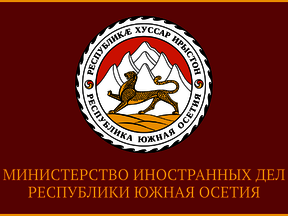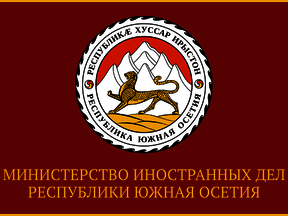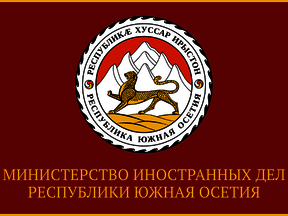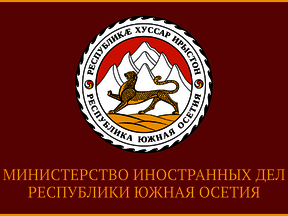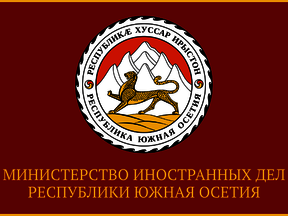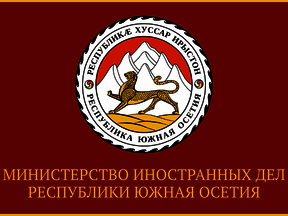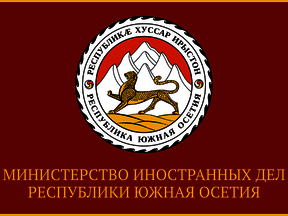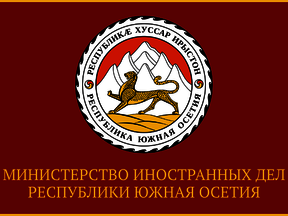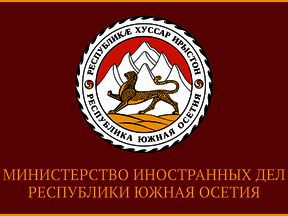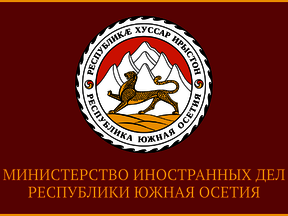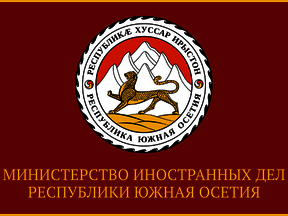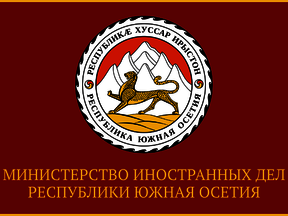Q: A meeting of Grigoriy Karasin, State Secretary, Deputy Minister of Foreign Affairs of the Russian Federation, and Zurab Abashidze, Georgian Prime Minister's Special Representative for Relations with Russia, was held on February 7. Despite the fact that it was a regular meeting in this format, information about its outcome attracted public attention in South Ossetia. What are the reasons of that?
Comments by the Ministry of Foreign Affairs of the RSO
A referendum, where citizens will be able to express their opinion on the rebirth of the ancient name of their country, the State of Alania, will be held in the Republic of South Ossetia on April 9, 2017.
A lot of people in the world, and first of all in friendly countries, hail this decision as a most important act that shows a commitment of South Ossetia to the principles of the democratic system of a state, fundamental right of its people in an confirming the sovereignty and the historical continuity of their state.
The decision that was made by the European Parliament on February 2 about provision of visa-free regime to Georgia has caused a boundless euphoria among Georgian authority, which began to offer these benefits to “those citizens of Georgia who live in territories that are not controlled by Georgian central government – in Abkhazia and Tskhinvali region”.
Couldn't but draw attention to the latest attempts to define “the status of Abkhazia and South Ossetia” once again undertaken in Georgia. This time the issue of their “special status as part of Georgia” was discussed by a constitutional commission of the neighboring state.
The absurd idea about a possibility of a certain “reintegration” and coexistence of South Ossetia, Abkhazia and Georgia within one state is imposed on Georgian society with a persistence that deserves better application.
Q: Could you please comment on the situation around conditions of the arrival of Julietto Kieza, a famous Italian journalist and political figure, to the Republic of South Ossetia.
A regular session of the OSCE Council of Ministers took place in Hamburg on December 8-9, 2016. The session saw a group of states-friends of Georgia circulating a statement containing appeals to Russia to call back recognition of the Republic of South Ossetia and the Republic of Abkhazia, appeals for “peaceful solution of the conflict” and reorganizing in Georgia “a full-scale OSCE mission”.
November 24, 2016 saw the Ministry of Foreign Affairs of Georgia publishing another quarterly report “on the Human Rights Situation in the Occupied Regions of Georgia”, covering this time the period from July to September of the current year.
The document differs slightly form previous “reports” and completely corresponds to Georgian logic of deliberately creating negative images of states neighboring to Georgia – the Republic of South Ossetia and the Republic of Abkhazia.
Pertaining to “Legendy armii” program (Zvezda TV) dated November 15, 2016 dedicated to Unus-Bek Evkurov, Head of Ingushetia
Pertaining to a statement made by Leonid Kalashnikov, Russian State Duma member
The statement of Leonid Kalashnikov, Russian State Duma member, made during an interview to RIA Novosti on November 16, 2016, surprised people in South Ossetia very much. According to Mr.Kalashnikov “…provides Moldova comes to a solution of its territorial conflict in Pridnestrovie, having it solved in a confederation sort, and keeps on developing relations with Russia, it will be an example for solution of conflicts in Georgia and Ukraine”.
The published information about the meeting of official delegation of the Georgian Patriarchy with James Appathurai, NATO Secretary General's Special Representative for the Caucasus and Central Asia, where as Metropolitan Andrew of Gori and Ateni stated, “the difficult situation in Abkhazia and Samachablo” had been discussed, wasn’t left without attention in South Ossetia.
October 13, 2016 saw a meeting of the autumn plenary session of the Parliamentary Assembly of the Council of Europe (PACE) where in his speech about human rights execution over Europe Frank-Walter-Steinmeier, the OSCE Chairperson-in-Office and German Foreign Minister, expressed his opinion about South Ossetia and in terms of observing the situation of human rights called the state a “grey zone” and a “black hole”.
